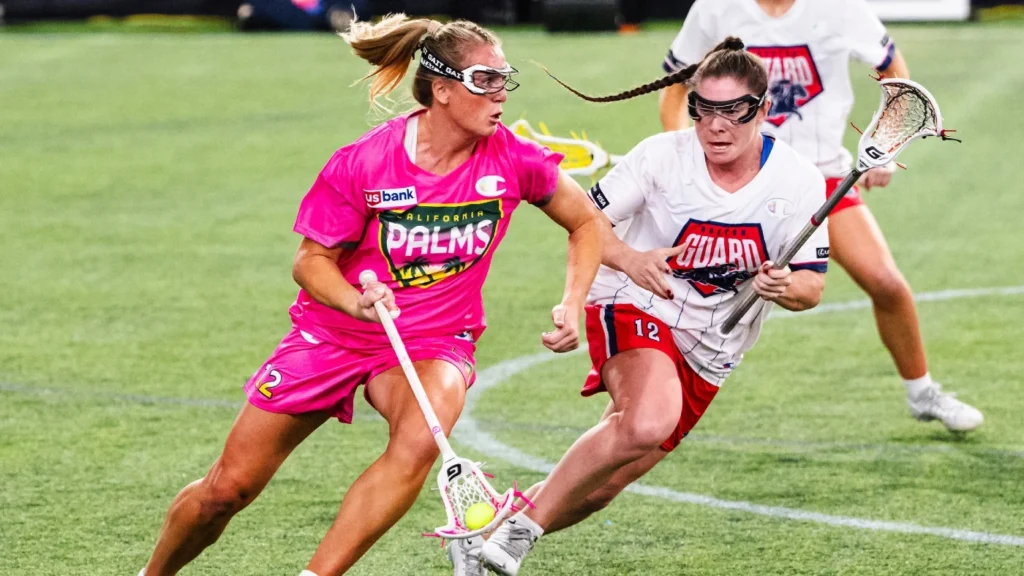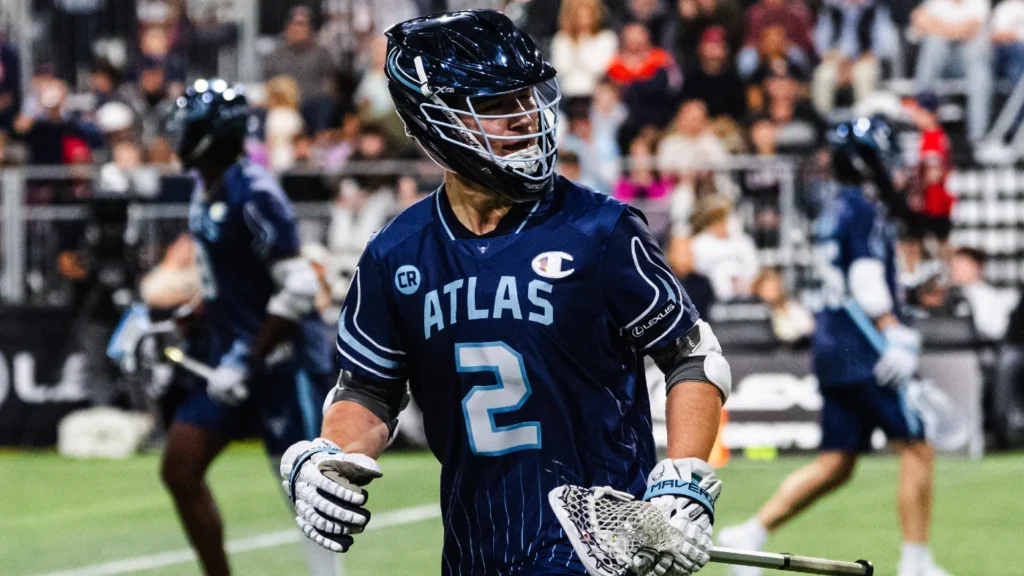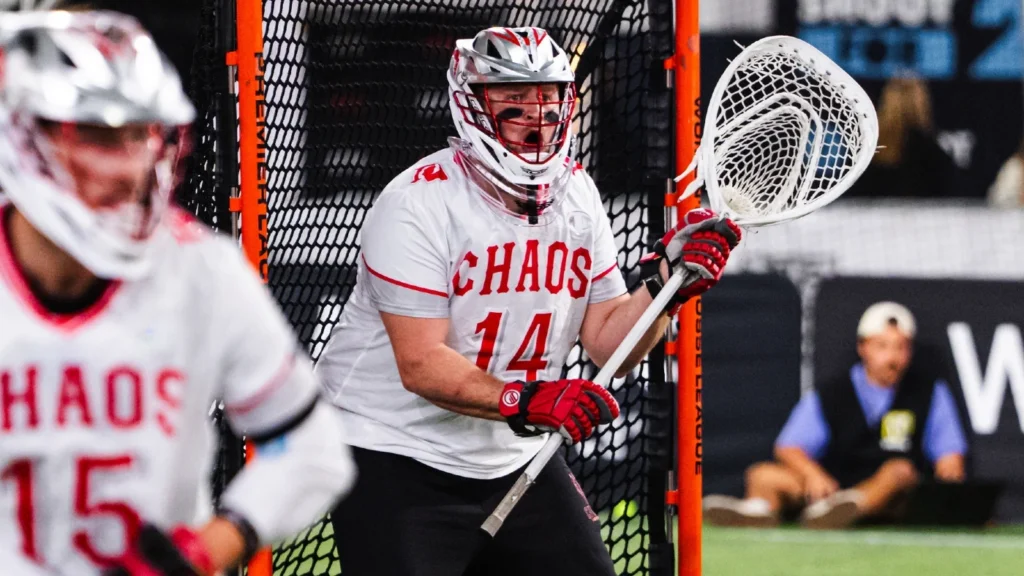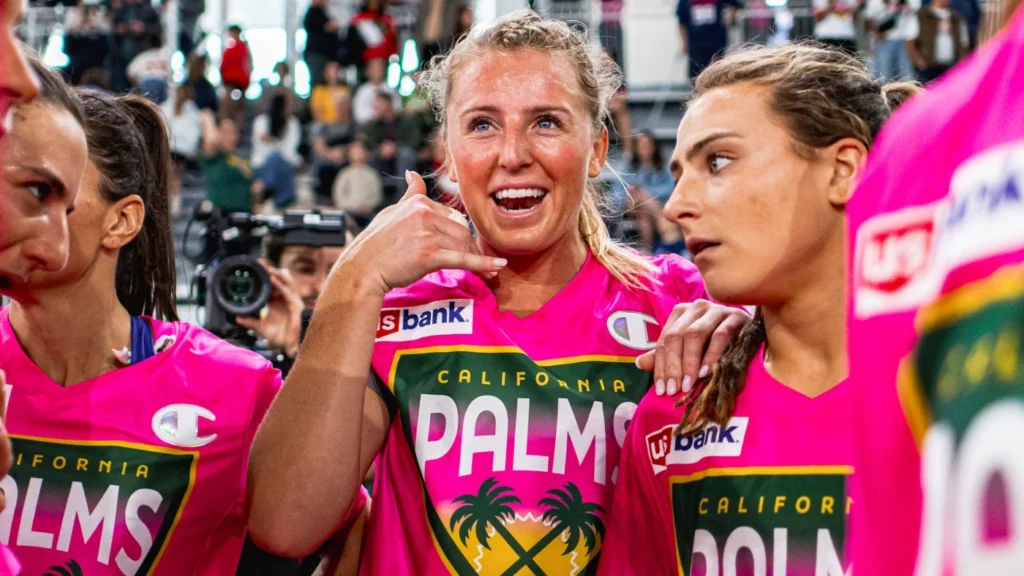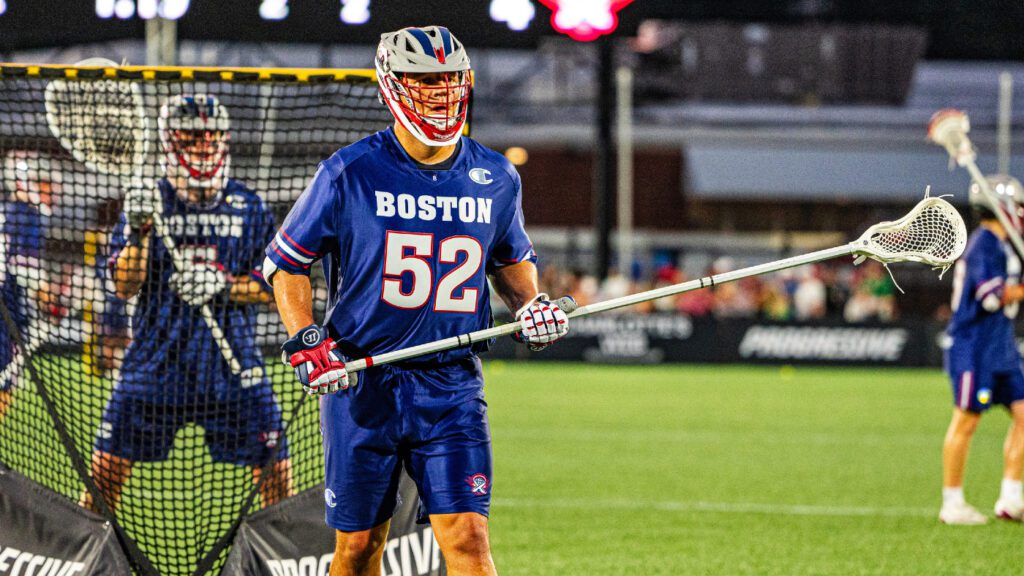
‘Best is yet to come’: Cannons’ dominant 22-minute stretch bodes well for new-look defense
By Sarah Griffin | Jun 11, 2024
Twenty-two minutes. The Boston Cannons defense held the Maryland Whipsnakes scoreless for 22 minutes in their 13-9 win Saturday night, from late in the first half until deep into the fourth quarter.
For the Whipsnakes, it felt much longer than 22 minutes. For the Cannons defense, it felt like progress.
“The best is yet to come with this group,” Garrett Epple said. “With a bunch of new guys, we started to build chemistry during training camp and into Week 1. But in the second half of the game on Saturday, things started to click.”
After their season-opening 19-12 loss to the New York Atlas, Epple stressed it was moreso a matter of unity and comfortability than any glaring technical concerns. Now, with another practice and game under their belt, the new-look Cannons defense is trending in the right direction.
Boston got out to an early 3-2 lead in the first quarter against Maryland, but that quickly slipped away in the second due to a 15.4% shooting percentage (4-for-26) by the Cannons. Despite some solid ball movement in settled play and intensity in transition, they struggled to put the ball in the back of the net. This put pressure on a Cannons defense still looking to find their footing as a unit and allowed the Whipsnakes to take a 6-4 lead into halftime.
How it responds to pressure says a lot about a team, and in only two weeks together, Boston’s defense has felt a lot of it. With Jack Kielty out for the season and Jake Pulver sidelined with a right abductor injury, Epple, Bryce Young and Cade van Raaphorst had to learn how to mesh as a close defense unit – and fast.
“People don't understand losing Jack Kielty, what it did to us. It really rocked our world a little bit,” Cannons head coach and general manager Brian Holman told ESPN’s Dana Boyle after the game.
Kielty served as the “field general” for the Cannons close defense the last few years. Though Epple is a new face for this Boston squad on the back end, he understood, especially as a veteran in this league, the importance of that on-field communication Kielty provided.
“When he went down, we all felt we all needed to raise our level of play and communication,” he explained.
In the second half in Charlotte, Epple and the rest of the Cannons defense did just that.
With Epple on Matt Rambo, Young on TJ Malone and van Raaphorst on Zed Williams, the three close defenders held the three Whipsnakes attackers to just one goal after halftime, a garbage-time goal from Rambo with about a minute left in the game. The Whips as a team scored just three in the second half, all in the final 3:08. With the way Boston was playing defense, it was a struggle for Maryland to even get a shot on net.
Epple emphasized their pick play in particular as a major point of adjustment at halftime. On multiple occasions, the Whipsnakes' midfielders tried to set picks for their attackmen, and instead of resulting in a shot on net, it became an offensive possession for Boston.
It seemed like the Cannons back end as a whole was operating a step ahead of the Whipsnakes offense. On one instance in the middle of the fourth quarter, the Whips had a full 52-second shot clock opportunity after a caused turnover by Keegan Khan in the defensive end. In 42 seconds of settled offense before a turnover by Malone, the Whipsnakes did not get one shot on net.
Boston’s defense was sliding at all the right moments, switching as needed, communicating and directing one another and really operating as a cohesive unit. Not only did Maryland get no shots on net on the possession, they were forced to move the ball almost entirely around the perimeter. Whipsnakes head coach Jim Stagnitta said it felt like “the ball was dying on the perimeter.”
“We really want to be a team that plays team defense,” Epple stated. “We want more of that six-on-six than individual play, and we definitely made a step in the right direction in that second half.”
Team defense comes with communication, and for Epple, that was the biggest improvement for this group in its second game together. With no Kielty, there wasn’t any one specific person who stepped up to be the general on the field. Instead, you could hear multiple voices orchestrating one another and providing support as needed. Even when offensive midfielders like Matt Campbell or rookie Alex Vardaro got trapped on defense, the defense helped direct them and get the right personnel in the right places.
“Guys were responding to what other teammates were saying and were clear in terms of providing on-field directions,” Epple remarked.
That team defense carried over off the ground, as well. Boston dominated the ground ball battles. Epple, Young, long-stick midfielders Craig Chick and Ethan Rall, and short-stick defensive midfielders Zach Goodrich and Jeff Trainor combined for 14 ground balls. On the flip side, Maryland’s Colin Squires, Tim Muller and Ajax Zappitello collectively won six.
Colin Kirst also played a strong game in net, posting a 60.5% save percentage (14 saves) that was second-best among goalies on the weekend.
With lockdown team defense comes a plenitude of offensive opportunities, and boy did the Cannons capitalize on those opportunities in the second half.
At one point in the third quarter, Rall won a ground ball battle in the defensive end, and by the time he picked his head up, van Raaphorst was already at the midfield on the run in transition. Rall lobbed it to van Raaphorst, who found Matt Kavanagh in the offensive end to slow things down and capitalize on the 52-second shot clock in settled play, resulting in a Campbell goal.
It was cohesive all-out team efforts like that beginning with the defense that resulted in a tremendous victory for Boston.
“We have an incredibly talented group, it’s just a matter of us getting on the same page,” Epple said. “The game with the Whipsnakes was a step in the right direction and it showed in that second half. But the best part is we’re nowhere near where we can be.”
As the Cannons defense continues to build on their chemistry, they know they’ll always have their general, even if he’s not on the field.
“Jack’s going to be with us all the way through the end,” Epple assured. “Some guys step away from the game in recovery, Jack’s the opposite. He’s not going anywhere. We always have him in our corner.”
